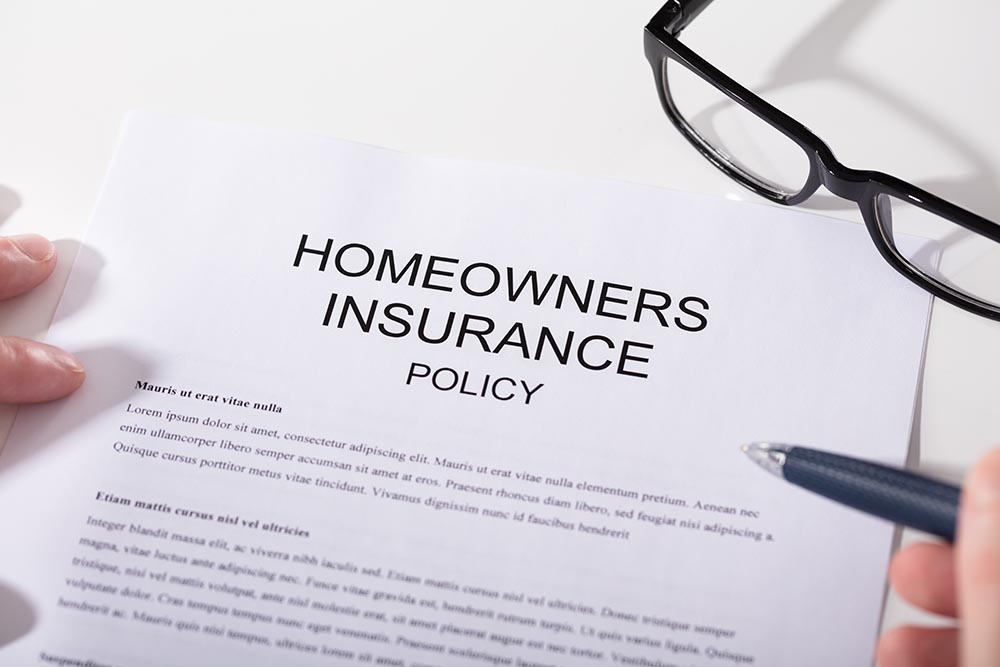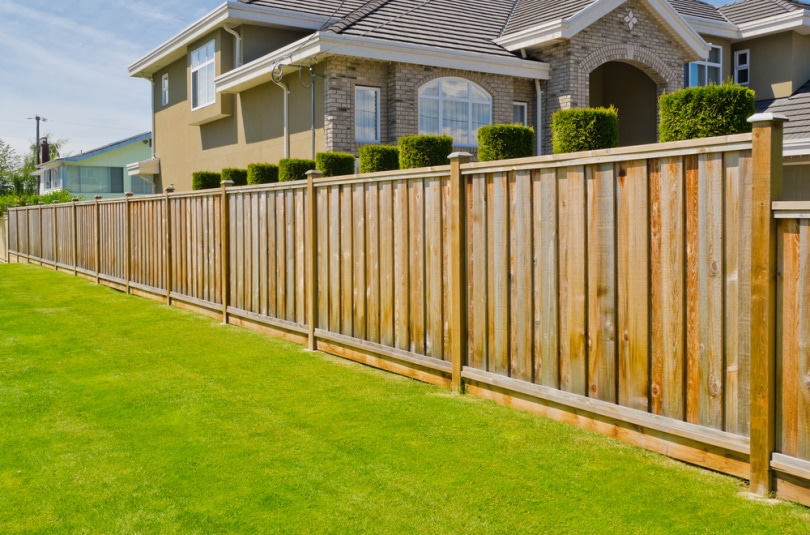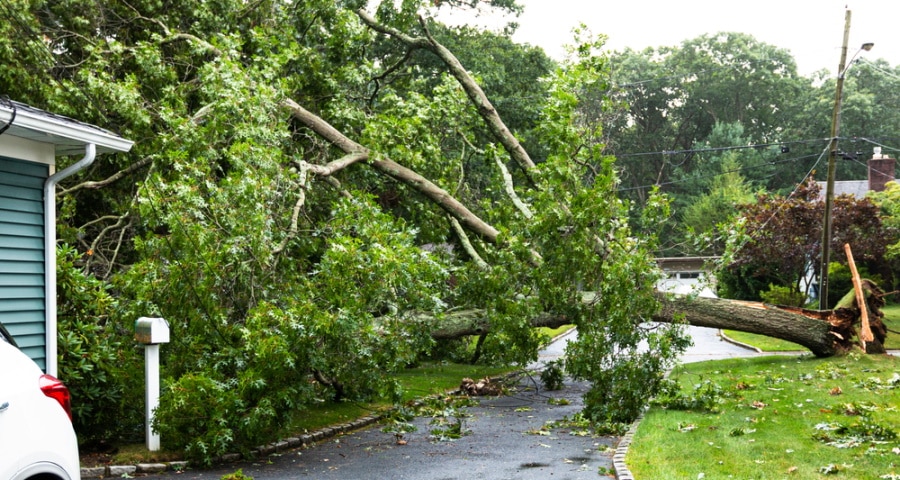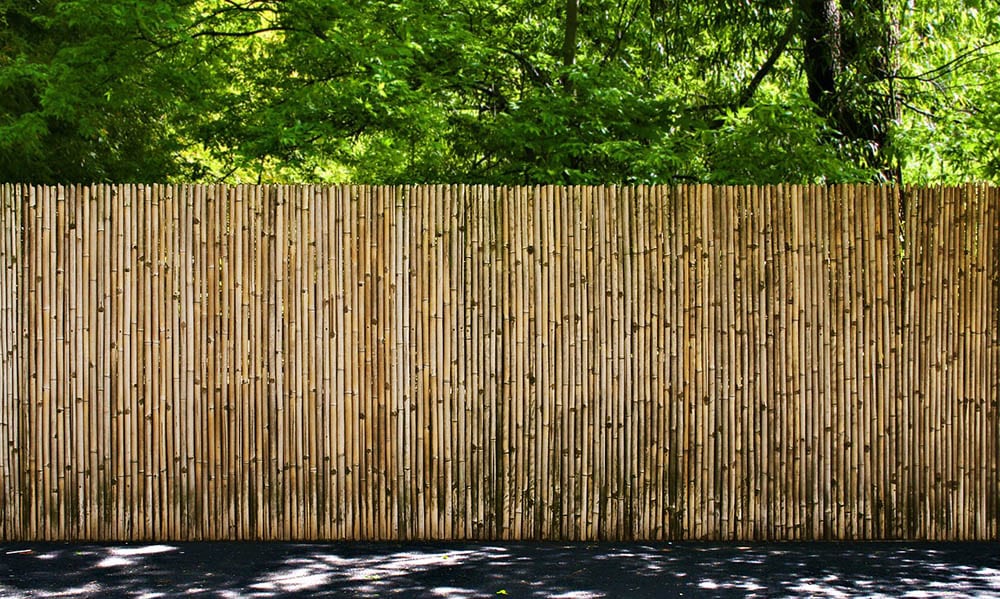Does Homeowners Insurance Cover Fences? Facts & FAQ
-
Pete Ortiz
- Last updated:

What happens when your neighbor’s tree falls on your fence? It happens to thousands of people every year. One minute, your fence is fine, and the next, it is being crushed by a fallen tree. This can be a headache and leave people wondering how much this is going to cost them. Are fences covered by homeowner’s insurance? Fences are not a part of the house, but they are important parts of your property.
The good news is that, in most cases, fences are covered under existing homeowner insurance. Your fence is protected from trees, severe weather, and accidents. The details about coverage for each incident will vary differently from policy to policy and person to person but in most cases, if something happens to your fence, it should be covered.
Other Structures Coverage
Most homeowners’ insurance coverage comes with a clause that covers outbuildings and exterior structures that are separate from your house but on your property. This is called other structures coverage. Other structures coverage includes things like sheds, barns, carports, garages, and, yes, fences. If your insurance policy has other structures coverage, then your fence should be protected in the case of damage. However, homeowners’ insurance will not cover every type of damage when it comes to fences.

What Is Usually Covered
There are a few types of fence damage that are usually covered under homeowners’ insurance. Here are some of the most common types of things that are covered with some examples.
1. Accidents
If your fence is damaged in some sort of accident, it is usually covered under insurance. If someone drives through your fence, the fence can be covered under either your homeowner’s insurance or the driver’s insurance.
2. Tree Strikes

If a tree falls on your fence, it should be covered under homeowners’ insurance. It does not matter whose tree falls on your fence. Your insurance should cover it. That means if a neighbor’s tree falls on your fence and damages it, your insurance will be the one to cover it. The same goes for a tree on the road that is technically on public property. The source of the tree has no bearing on the status of the fence and your insurance policy. It will be covered in all cases.
3. Severe Weather
If your fence gets blown over in severe weather, it will be covered by insurance. Severe weather will cover things like high wind, lightning, and tree debris. If your fence gets blown over in a severe storm, including a hurricane, it should be covered under your homeowner’s insurance policy.
4. Vandalism
The last type of damage that is covered by insurance is vandalism. If someone intentionally damages your fence, it will be covered by your dwelling policy. Whether someone broke your fence to get onto your property in the event of a crime or if some kids spray paint your fence, these types of incidents should be covered by insurance.
What Is Not Covered
Homeowners insurance will not cover everything. Normal wear and tear, aging, and damage from insects will not be covered.
Rot
If your fence rots from exposure or age, it will not be covered by insurance. It is the responsibility of the homeowner to identify and mitigate rot before it damages the fence.

Termite Damage
If your fence gets attacked by termites or any other damaging bug, it will not be covered by insurance. In fact, termites are rarely covered by homeowners’ insurance, even if they get into your house. Termites require special insurance to protect against them, and your fence is not covered in this instance.
General Wear
If your gate breaks or you have cracked pickets or a sagging fence, it is considered general wear. General wear is not covered under homeowners’ insurance. Regular maintenance, replacements, and repairs are the responsibility of the fence owner to maintain and not the insurance company.
Check Your Policy
If you are curious about your individual fence and your personal insurance company, you need to check your policy. Every homeowner’s insurance policy is a little bit different, and different companies have different rules and guidelines when it comes to filing a claim. Read the fine print of your policy to determine if your fence is covered. Be sure to look out for the details under other structures coverage. Pay attention to the deductible amount or the coverage amounts. If you are still confused, call your insurance agent.
Also, be sure to look out for helpful FAQs on your company’s website or customer support portal for additional information.
In Conclusion
If some exterior force comes along and prematurely affects the lifespan of your fence, it should be covered by insurance. Damage by other people, wind, severe storms, trees, and other similar events is usually covered by homeowners’ insurance. Regular wear and tear, aging, rot, and poor maintenance are not covered under insurance. If you are wondering about your individual policy, be sure to read it for yourself.
Related Reads:
Featured Image Credit: Andrey_Popov, Shutterstock
Contents


